 |
 |
 |
 |
 |
 |
 |
 |
|
|||||||
| طلبة وطالبات وانشطة تربوية يهتم بجميع شؤون المعلمين والطلاب وبجميع أنواع النشاط الذي يتناسب مع قدرات الطالب وميوله واهتماماته داخل المدرسة (الكلية) وخارجها |
 |
 |
 |
|
|
خيارات الموضوع | ابحث بهذا الموضوع | طريقة العرض |
|
#1
|
|||
|
|||
|
ابي معلومات عن اسباب تلوث البيئه بالانجليزي safe environment
السلام عليكم ورحمة الله وبركاته
علي اسوي تقرير عن التلوث بالانجليزي عاد آخر شي الابله رضت اني اكتب عن safe environment بعد مناقشه طويله ههههههههههه بس كل ما ادور معلومات عنه القى اشياء غير مثل عن شركات وعن خططهم وجيه بس ما القى اللي اريده ابي عن اسباب تلوث البيئه و طرق معالجتها و .. و .... و .... جيه يعني بس يكون بالانجليزي اتمنى انكم تساعدوني  |
|
#2
|
||||
|
||||
|
: ابي معلومات عن safe environment
هلا يالفراشة
انا دورت بعد بس مثل ما لقيتي كله عن شركات لو تشوفي من المجلات او الجرائد بتحصلي معلومات اكثر وشوفي هذا الرابط يمكن بيساعدك https://en.wikipedia.org/wiki/Environment واذا حصلت شي ثاني بنزل لك .. |
|
#3
|
|||
|
|||
|
تقرير عن التلوث بالانجليزي
اسباب تلوث البيئه و طرق معالجتها..
..Cause environmental pollution and how to address them Introduction We all create pollution therefore everyone can make a difference to reduce pollution. Although it may seem like it is difficult to stop pollution, there are lots of things that can be done every day to reduce or eliminate pollution altogether ?What is Pollution ما هو التلوث؟ ,Every day we pour or release harmful substances such as poisonous gases chemicals and garbage into our environment. These harmful substances that end up damaging the environment, are called pollution. Most pollution comes from factories and transportation but as you will see we all .contribute to it in many different ways 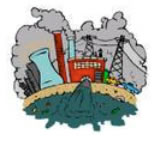 All pollution is waste. Waste is unwanted or discarded material and when it is released into the environment it becomes pollution. When most people think of waste they think of garbage or trash that is littered all over the land. This type of waste is the one that most people are familiar with and it is commonly called solid waste. But solid waste pollution is not the only type of pollution out there. Can you think of ?other types In addition to solid waste there is air pollution, water pollution, soil pollution and even noise pollution. As you will see, if not handled properly, pollution can and has contaminated our air, water, soil and .land Air Pollution تلوث الهواء Every living creature relies on clean air to survive. Air is made up of a mixture of gases, mainly oxygen and nitrogen, with small amounts of carbon dioxide plus water. Air has no colour or smell, except when it is polluted. Dirty air can affect the health of humans, animals, plants and can even damage buildings. Industry and transportation produce most of the air pollution, releasing millions of tons of harmful substances into .the environment each year 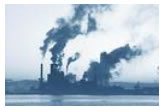 The burning of fossil fuels (coal and oil) is the source of or generates most of the world's energy. Unfortunately it also generates most of the world's air pollution. That is because when we burn the fossil fuels to produce energy we end up releasing waste in the form of toxic gases. Carbon monoxide, carbon dioxide, nitrogen oxides and sulphur dioxides are some of the most dangerous gases produced during the burning of fossil .fuels Carbon dioxide gases play a big role in the greenhouse effect by trapping heat rather than allowing it to escape into space. It is not just what is released into the air that causes problems; it is also how individual ,pollutants interact with each other, water and/or sunlight. For example sulphur dioxide and nitrogen oxide are both dangerous when they combine .with other substances to create problems such as smog and acid rain .Gases are not the only air pollutants that we should be concerned about Tiny bits of dust, metal, soot and other materials also find their way into the atmosphere from manufacturing plants, construction sites, wood burning stoves and cars. These small particles reduce the quality of the .air that we breathe 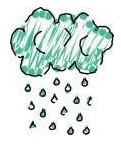 Also, sometimes rain contains chemicals called acids that can harm the ,environment including plants and animals living on land and in the water as well as damage buildings and other manmade structures such as monuments, roads and vehicles. Acids cause so much harm because they can burn into materials. Acid rain forms when sulphur dioxide and nitrogen dioxide (produced by burning fuels) are released into the air. These two gases mix with water to form a weak acid which falls as rain. The gases that cause acid rain are released by power plants, factories and transportation. Acid rain falls to the ground and is taken up by tree roots, eventually causing the trees to die. The acid rain will also .affect the plants and animals living in rivers and lakes Water Pollution تلوث المياه In addition to clean air, all animals and plants need a clean water supply in order to survive. You may think that we have lots of water but only a small amount of it is freshwater that we can use and we are .polluting our water in the same way we are polluting our air When harmful substances such as oil and chemical wastes enter the waterways either through accidents or through being intentionally dumped, they are soon carried away by tides or the flow of the river and are extremely difficult to remove. As a river makes it's way to the ocean, a number of different chemicals can enter its waters. Harmful chemicals can enter our rivers and lakes from any number of sources. For example they can seep out of dumpsites or pesticides and fertilizers may drain from farmlands or they may find their way into sewage that is pumped from local towns and cities 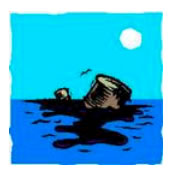 One of the most damaging forms of water pollution is from oil. Oil spills from ships and oil tankers at sea cause devastating water pollution and harm wildlife. These events receive lots of attention on television and from environmental groups, however these spills only represent a small .percentage of the total amount of oil that contaminates our water ,Tankers dump oil into oceans as part of their routine cleaning refineries pump oily wastewater into surface water and oil from city .streets are washed into storm drains that eventually enter our waterways When people rinse materials down the drain, flush their toilets or do a load of wash, the wastewater usually goes to sewage treatment plants to be purified. These plants will then remove dirt, biodegradable materials such as food waste and a number of other pollutants before the water reaches our waterways. However, most treatment plants can't remove all of the chemicals that are used in products such as paint thinners or phosphates that are used in many detergents and these substances end up passing right through the sewage treatment plant untreated. Other sources of water pollution include the dirt and litter from the streets that are washed into storm drains. In most areas these storm drains empty into ,underground pipes that will eventually dump directly into our lakes .rivers and oceans Land/Soil Pollution تلوث التربه Disposing of acids, pesticides, chemicals, radioactive waste, sewage sludge and other types of hazardous waste on our lands has become one of the most dangerous pollution and waste problem. Most of this hazardous waste is sent to landfill sites or burned in incinerators which in turn create toxic runoff and air pollution. In the past this hazardous waste has also been buried deep underground. However, because of poor storage methods older landfills and underground storage sites may end up leaking .hazardous materials into surrounding soils and sometimes groundwater This results in contaminated lands that pose a threat to people living in .the area as well as to wildlife and the environment 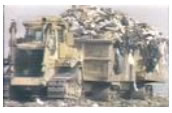 Not only should we be concerned about the leaking of these wastes but we should also be concerned about the amount of waste that is being disposed of in these landfill sites. Per person, Canadians throw away more garbage than any other country. The more garbage we produce the more resources and space we will need to dispose of it. This is a problem because we are running out of places to locate landfill sites. Nobody wants to live next to a dumpsite but what do we do with all that garbage? We can learn to .reduce the amount of garbage that we create Even more disturbing is what we are actually throwing out and sending to these dumpsites. There is more paper than any other material found in landfills. Over 38% of all materials a landfill is paper. The next highest is metal, glass and plastics at 34%. Finally, about 15% of the material disposed of in dumps are food and yard waste. All of these materials can and should be kept out of our landfills. If you add up all these numbers, over 87% of what makes up a landfill site could have been recycled, reused or composted. But instead we are polluting our land by throwing them away as garbage and using up our natural resources .(unnecessarily (i.e. cutting down more trees to make more paper Noise Pollution التلوث الضوضائي 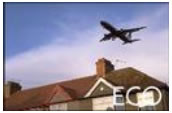 Modern towns and cities are noisy. Within these cities there is a .constant rumble from cars, trucks, buses, machines, alarms and sirens Even loud music is a form of noise pollution. Some communities are also .located in noisy areas such as airports or near a train track/station .Other people have to work in noisy factories When these vehicles, horns, radios, heavy machinery, make loud and continuing sounds they are producing noise pollution. We don't think of noise as being able to hurt us but it does. Noise can cause damage to our hearing and lead to other health problems, especially if you are exposed .to loud noises for long periods of time ?Who Creates Pollution من يسبب التلوث؟ ?Who do you think creates all these different types of pollution Pollution is created by industries, offices, schools, farms, cars, and .even our homes There are many things in our daily lives that we use to make our lives easier, safer and more comfortable - however these things also create وpollution and waste that are bad for the environment. Cars, fast food وnewspapers, air conditioning, household appliances (i.e. microwaves hairdryers) and many other items all result in pollution. Pollution not only happens in your home but also on your street. Garbage spills from .garbage cans and exhaust fumes from cars, trucks, buses ?What is Pollution Prevention ما هي موانع التلوث Usually, once pollution is created it is here to stay. When we try to clean up pollution after it has already been created, sometimes we just end up shifting it from one place to another (i.e. from land to air or to .(water Therefore, instead of trying to clean up pollution or wastes after it has been created, pollution prevention looks at ways of reducing the creation of pollution and waste by changing the way we buy, make or discard of things. Pollution prevention aims to identify activities or areas in processes where waste can be avoided such as: where less toxic or less hazardous materials can be substituted for the more toxic ones; and where .energy, water or other raw materials can be saved or conserved The pollution prevention approach tries to focus on reducing pollution at .(the source (i.e. where it is first created 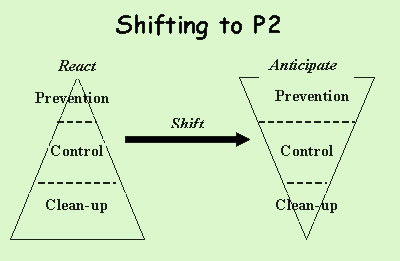 Pollution costs money. In the past, industries and businesses really only looked at the cost of treating and disposing of pollution. But pollution .is not only expensive to treat; it also takes energy and resources (i.e labour, time) to create it in the first place. Therefore, in the long run, it costs less to avoid creating waste or pollutants from the start .than trying to clean up, treat or dispose of it ?What is not considered Pollution Prevention ما هي الاشياء التي لا تعتبر موانع للتلوث؟ In the past, when pollution was created people looked for ways to control the pollution after it was created. Treating wastewater, filtering air emissions and using landfills for solid waste are all methods of controlling pollution after it is generated. Controlling or treating pollution is not considered to be pollution prevention. For example when wastewater from a factory or a home is treated, the water ends up cleaner but the factory is then left with sludge made up of all the materials that were filtered out of the water and which needs to be disposed of on land. In other words, pollution control or treatment often moves the .pollution from one type of medium (i.e. air, water, land) to another :Examples of activities that are not pollution prevention include Any kind of waste treatment or pollution control * . Recycling that takes place outside of the building or industry * Although recycling does help reduce the amount of garbage sent for disposal it does not prevent pollution. Energy and money still need to be spent to recycle the materials (i.e. melting plastic or glass into .( new objects Transferring hazards or toxics from one medium to another (i.e. from * (air to water or land to air Diluting or making something less toxic or hazardous by adding water * or another substance These all work to control or manage the pollution once it has already been created. Remember - pollution prevention wants to stop the pollution .or waste from ever being produced ?Why Prevent Pollution لماذا نمنع التلوث؟ Why should we prevent pollution? When we prevent pollution, we save energy, conserve resources (such as trees needed to make paper), reduce pollutants and waste, and lessen exposure to harmful materials which .means we often save money and have a healthier place to work or live :Pollution prevention creates many benefits, including Minimizing or avoiding the creation of hazardous wastes or substances * released into the environment Reducing the dangers to our health - less exposure to harmful * substances and it helps create cleaner air and water .Speeding up the reduction or elimination of pollutants i.e * industries and consumers will look into using more "environmentally "friendly substances Promoting the development of new technologies, machines and materials * that reduce the amount of pollution produced Encouraging the use of energy, resources, materials more efficiently * Reducing the amount of money spent on investigating and charging * polluters that break various environmental laws Avoiding costly clean ups after spills or accidents involving * hazardous substances Promoting a more competitive economy * ?Who Can Prevent Pollution من يستطيع منع التلوث؟ Pollution prevention, and the benefits that result from it, do not just happen. It requires some planning and a lot of commitment from everyone involved. Pollution prevention is not something that is done only at factories or industries. Everyone should consider how much waste is .created from what they use, buy and eventually throw away .Most people don't need to be convinced that pollution is a problem Everyone, from individuals to businesses to government has a role to play .in finding solutions to pollution and other environmental problems As more people speak out, more businesses will listen and start to do their part in preventing pollution. Many companies have already developed new processes, equipment and practices that are helping to reduce the amount of chemicals they are using and emissions that they are releasing to the environment. As well, Environment Canada has been working with businesses, industries and communities to develop projects that will help .decrease the amount of pollution that is being created 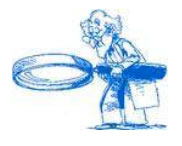 However, businesses and governments are not the only sector that is responding to the growing concern. Many people have jobs that involve :looking for ways to prevent pollution, including Scientists * Teachers * Factory workers and managers * Engineers * ?How Can We Prevent Pollution كيف نستطيع منع التلوث؟ Preventing AIR Pollution منع تلوث الهواء We can help to reduce and prevent air pollution by using less electricity .and gasoline  Walk, cycle or use public transportation * Give friends that are going to the same place as you a ride (i.e. car * ( pooling Turn off lights, TV, radio and other electrical items when not in use * Use low-energy or energy-saving light bulbs * (Avoid using gas powered machinery (i.e. lawn mowers * Fill up the car with cleaner fuels * Keep your car tuned and schedule routine maintenance checks * !Turn off your engine when waiting - do not idle * Reduce Engine Idling When cars, trucks and buses are left running while parked, they produce unnecessary pollution that contributes to climate change and smog, which affects our health. A recent study in Toronto found that more than a third of parents or caregivers waiting to pick up their children sit in .their vehicles with the engines idling Preventing WATER Pollution منع تلوث المياه There are a number of ways that you can help prevent water pollution around your house, school, work or neighbourhood. Here are just some of :the ideas 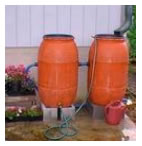 Install "low-flow" shower heads and faucets to reduce water use * Only run the dishwasher when it is full and use dishwasher soap that * does not contain phosphates Disconnect the down spout from your eaves trough if it discharges * into a sewer system Install a rain barrel to collect rain for watering plants and your * .lawn. Share your rainwater with neighbours Plant plants that can grow with low moisture content in soils and do * not need to be watered very often Take your car to a car wash facility rather than washing it in your * driveway or on the street Don't pour chemicals down the storm sewer * Buy biodegradable or environmentally friendly soap and other cleaning * supplies Fix taps, faucets and pipes that are leaking * Preventing LAND Pollution منع تلوث التربه !The best thing we can all do to cut down on waste is to make less of it When we reduce the amount of waste that we produce this will reduce amount of garbage that we have to dispose in landfills. Some ideas on :reducing land pollution include  Try to purchase materials that are sold in reusable containers * Look for products that have very little packaging to throw away * Buy biodegradable products * Buy in bulk to reduce packaging * .Use safer alternatives to pesticides * !Reduce, Reuse, Recycle * Buy organically grown fruits and vegetable. (i.e. those that are * (grown with natural fertilizers such as composted manure or compost Take old clothing, furniture and appliances in good working condition * to collection depots and centres Preventing NOISE Pollution منع التلوث الضوضائي/الضجيج .Reducing noise pollution is the easiest one of all Keep the volume of music and the television down at home so you don't * disturb other family members or neighbours Don't slam doors * Don't thunder up and down stairs - try to walk quietly * At the end, pollution prevention is not difficult. Opportunities can be found at home, when you shop at the store, when you go to school or when you go to work. You can take steps every day to help stop pollution. Once ,you get in the habit of thinking about the pollution you are creating .you will soon recognize more and more opportunities for preventing it Challenge yourself to find a new way to reduce pollution each week or improve on something you have already started, like riding your bike more .often, or walking to school every day instead of once or twice a week ================================================== ================================================== مقتطفات .. How to Prevent Pollution in Everyday Life كيف نمنع التلوث في حياتنا اليوميه..  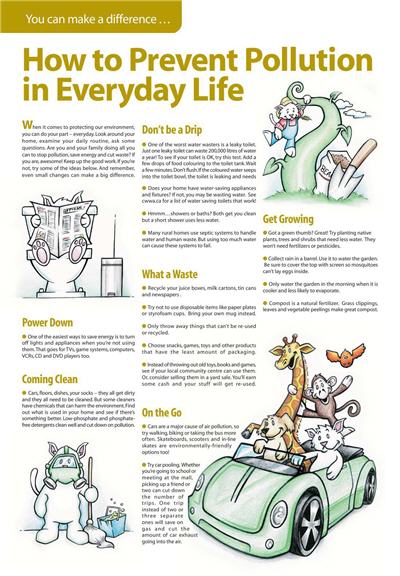 الصور بالحجم الطبيعي مرفقه.. مواقع مفيدة.. https://www.exampleessays.com/essay_...Pollution.html https://en.wikipedia.org/wiki/Pollution https://www.lbl.gov/Education/ELSI/F...vention-f.html مقالات قصيره مرفقه.. ..Environment pollution تلوث البيئه.. ..How To Prevent Pollution كيفية منع التلوث.. وفقك الله.. |
|
#4
|
|||
|
|||
|
: ابي معلومات عن safe environment
شكرا بينك بانثر واسير
على المعلومات وآسفه تعبتكم ظاهر انك تعبت وايد اسير كنت ادري انك بتساعدني شكرا والسموحه والحمدلله سويت التقرير اليوم ^__^ |
|
#5
|
|||
|
|||
|
: ابي معلومات عن اسباب تلوث البيئه بالانجليزي safe environment
شكرا جزيلا
|
 |
| مشاركة الموضوع: |
|
 عناوين مشابهه
عناوين مشابهه
|
||||
| الموضوع | الكاتب | القسم | ردود | آخر مشاركة |
| اريد معلومات عن الحضاره اليابانيه بالانجليزي | نور الليل | طلبة وطالبات وانشطة تربوية | 3 | 05/03/2008 05:11 PM |
| |